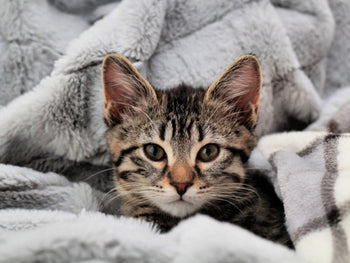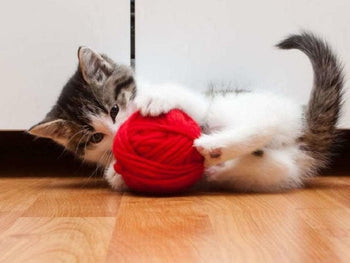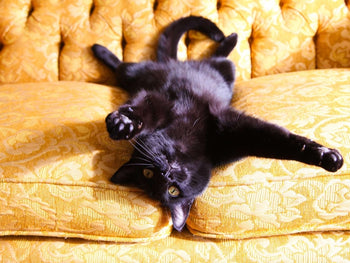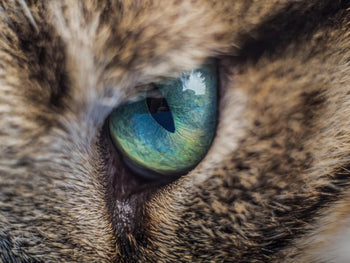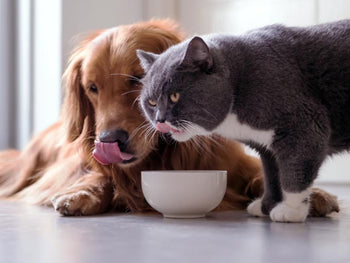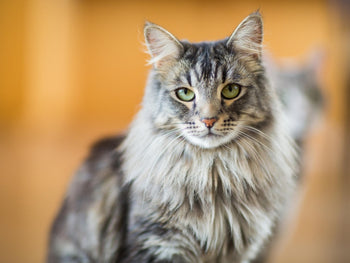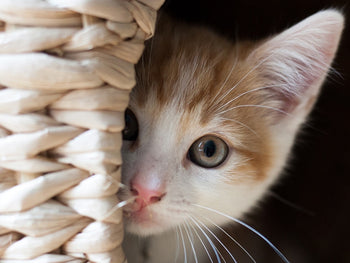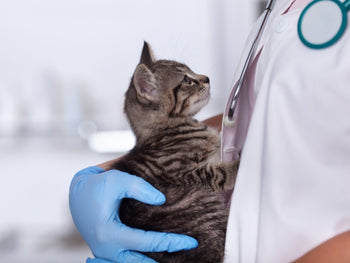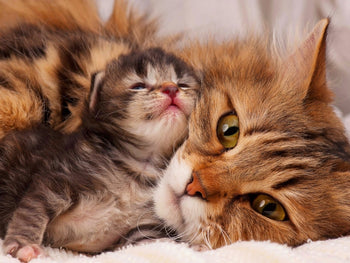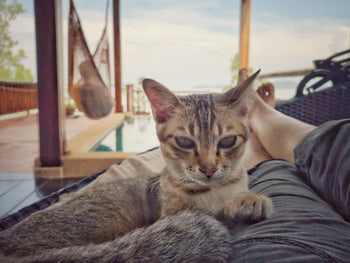
By Week 10, kittens shall be fully mobile which means they could run through the house by themselves without much difficulty. During their adventures, the felines tend to expend a good deal of energy so it's only natural that they seem hungry all the time. As kittens eat exclusively solid food at 10 weeks, you don't have to spend too much time on meal preparation. However, one question still troubles many people: how much should a 10-week-old kitten eat? Without a sound diet, kittens would have difficulty developing properly.
Your fluffy friend just reached 10 weeks of age and you want to know how to best feed it every day? In that case, this article is exactly what you need. Check out the information down below to understand the daily diet of kittens at Week 10.
The Required Amount Of Calorie

Regarding calorie, you have to keep in mind one rule of thumb here: "200 kilocalories a day per 5 pound of weight". As most kittens normally gain a pound a month, the weight of your furball at 10 weeks should be around 2.5 pounds. So that means you have to put together a diet that delivers at least 100 kilocalories a day for the pet.
Of course, different cats have different requirements, especially with big cat breeds such as Ragdolls, Maine Coon and so on. Certain kittens may need as many as 100 kilocalories per pound a day which translates to a daily diet of 250 kilocalories. To ensure that your fluffy friend is receiving sufficient calories, take a look at its body once in a while. Healthy kittens would gain weight steadily until the 1-year mark. In addition to that, kittens that eat nutritiously every day shall have a shiny coat.
The Feeding Frequency For Kittens

Generally speaking, kittens at Week 10 indeed have a big appetite but it's worth noting that their stomach remains limited. That is why "how many times kittens should be fed in a day?" is as important as "how much should a 10-week-old kitten eat?".
Most of the time, at 10 weeks, kittens need to be fed small portions of food around 4 times a day. Depending on your situation, you could prepare the food on your own but buying commercial cat food is a popular option for these kinds of days. To make sure that your furball gets what it needs, always prioritize kitten-specific products. Compared to food for adult cats, kitten food contains more nutrients which prove vital to the proper development of kittens. It's fine to give your kitten cat food labeled as "for all life stages".
Check us out for various astonishing cat tips & facts!
Measuring The Amount Of Food

Hungry kittens empty their feeding bowl without a care in the world so it's essential that you measure the amount of food before serving. If cat parents just shove the food straight into the bowl then it's only a matter of time before the felines experience stomach upsets.
Needless to say, a "handful " is a rather inadequate measurement here due to the difference in size between the hands of people in the house. If you want to be precise, it's strongly recommended that you use a food scale while measuring the amount of food in the bowl. Once you manage to get the amount right, you should put the food into a measuring cup and proceed to write down what you see. From now on, you would be able to use the cup in order to quickly provide your kitten with enough food every day at mealtime.
Miscellaneous Issues While Feeding Kittens

-
Be Ready To Make Adjustments
After knowing the answer to the question of "how much should a 10-week-old kitten eat?", it's a good idea for pet owners to follow principles while feeding kittens. That being said, from time to time, you must increase and decrease the amount of food to match current developments. For example, kittens, especially ones that recently got adopted from the street, need to take in more calories while going through treatments for parasite infections. Besides that, season transitions also require a few changes in the daily diet of kittens.
-
Avoid Handing Out Human Food
Every now and then, it's fairly hard for pet owners to resist the urge to give the kittens food from their dining table, refrigerators,... but if you want to keep your furball healthy, refrain from giving it your food. Being obligate carnivores, cats get practically all of their nutrients through fleshes of other animals. That means if you let your kitten eat human food, it may run into troubles. Even something as simple as cow milk could cause issues to weaned kittens which means you have to be careful.
-
If Possible, Use Wet Food
Dry food obviously lasts longer than wet food out in the open on average. Additionally, if you keep your fluffy friend on a dry food diet, it would have a hard time making a mess out of their food. However, by giving your cat wet food, you could supplement its daily water intake as a couple of felines don't like to drink water. Dehydration causes lots of health issues so if you give your cat a wet food diet, it's a breeze to keep the pet hydrated. If you want to mix things up on occasions, feel free to mingle wet food and dry food before serving.
Free-Feeding Vs Meal-Feeding: What You Need To Know

While discussing the question of "how much should a 10-week-old kitten eat", many feline experts suggest that pet owners adopt a meal-feeding regime. So why free-feeding is not a good choice here?
Well, kittens forget everything when they see food so if you fill the feeding bowl, your furball may proceed to empty it in one go. Considering the small stomach of kittens, consuming large amounts of food at once definitely brings a wide range of troubles. In addition to that, leaving the food exposed to the elements would affect their properties which often lead to wastages. That is why meal-feeding is superior to free-feeding.
Read more Cat's Health Guides and find fun stuffs on Cattybox!
